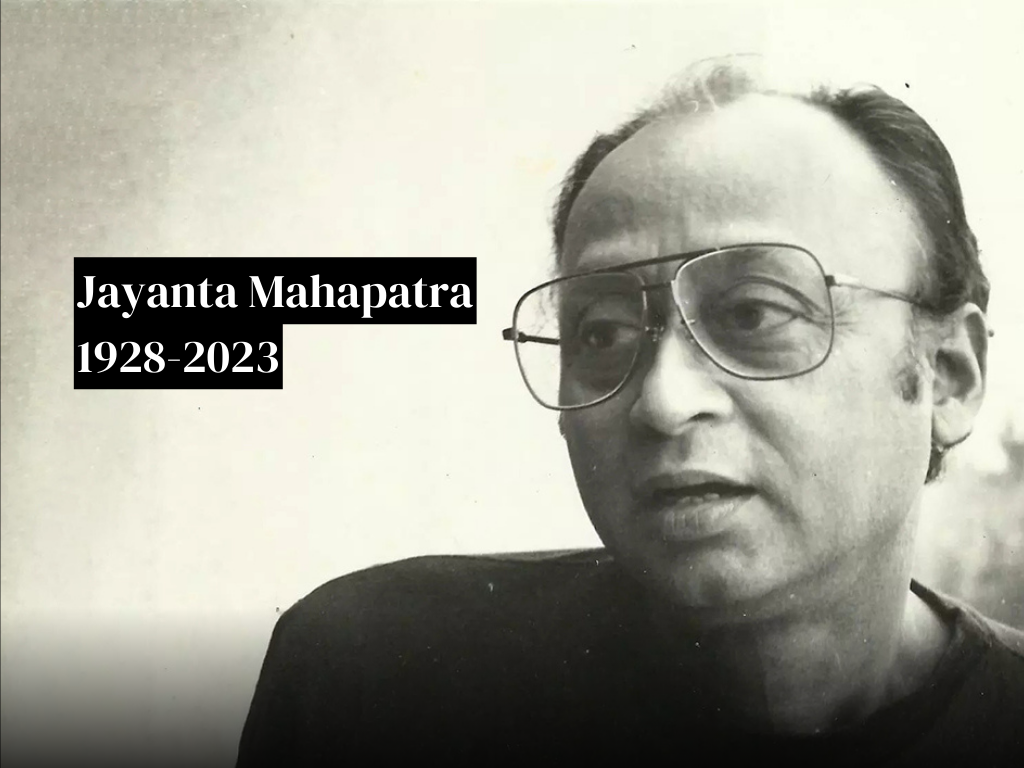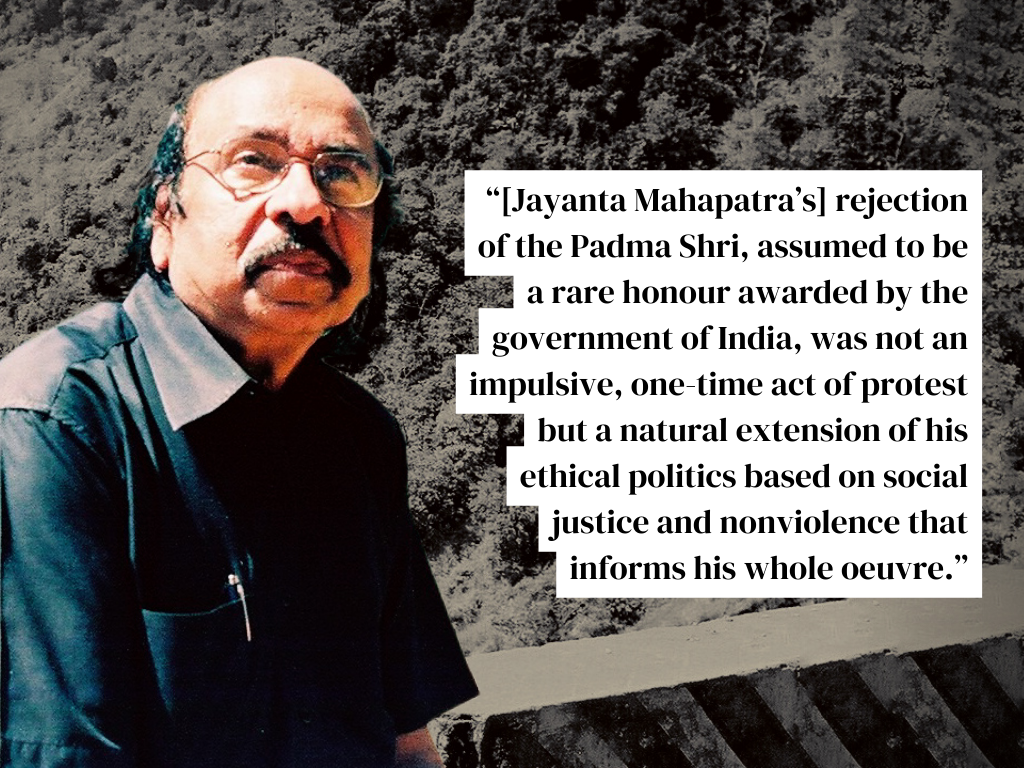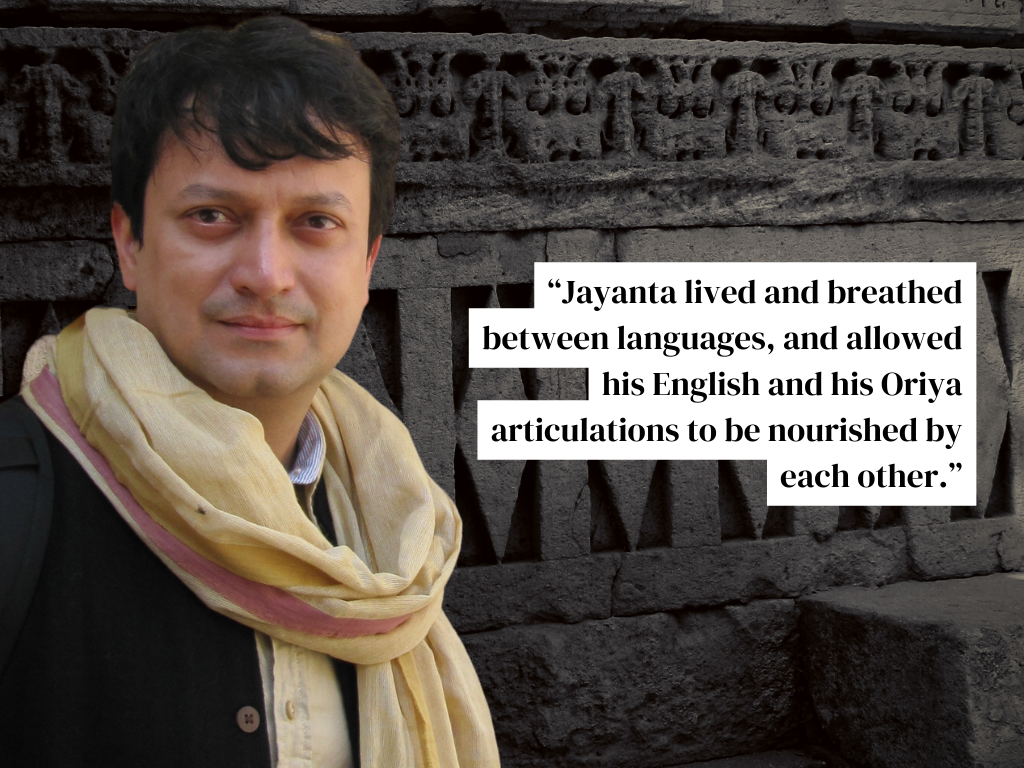
On August 27, eminent poet Jayanta Mahapatra died aged 94. Mahapatra was the first Indian poet to win a Sahitya Akademi award for English poetry in 1981. He was also awarded a Padma Shri in 2009. He returned the award in 2015 amid growing intolerance in India.

Paying tribute to the Mahapatra, eminent poet K Satchidanandan said: ‘[he] stood apart in the landscape of Indian poetry in English by virtue of his unabashed commitment to the cause of the deprived and his honest articulation of sordid Indian social realities, often even placing intellectual honesty over his poetic craft. He loved to call himself an Odiya poet writing in English as he was so close to his native soil and his people, and later also began to write in Odiya, leaving seven collections in that language, along with his seventeen collections in English besides his Collected Poems. He was by no means an academic poet and was too genuine to shy away from his emotions. His poetry was entirely shaped by the life he lived and saw. His rejection of the Padma Shri, assumed to be a rare honour awarded by the government of India, was not an impulsive, one-time act of protest but a natural extension of his ethical politics based on social justice and nonviolence that informs his whole oeuvre. He played mentor — an entirely self-effacing one — to several young literary talents writing in English as well as other Indian languages through Chandrabhaga, his journal of poetry, and through his own translations of emerging Odiya writers. I have lost a great personal friend, an elder companion poet, and an editor who instilled in me the confidence to go on with my translations of my poetry as well as that of younger poets in my language into English.’

Poet, translator and essayist Ranjit Hoskote, remembering Mahapatra’s life and work, said: “Jayanta’s life and work straddled a momentous century in the history of Indian literature, and embodied the vexed yet generative interplay between the urgent pressures of modernity as experienced through crisis and decentering, and the persistences of various forms of tradition, both empirical and imagined. In his poetry, this interplay came across through the constant tension between a present marked by vulnerability and ephemerality and a past symbolised by monumental sacred architecture and the seasonal cycles. Jayanta lived and breathed between languages, and allowed his English and his Oriya articulations to be nourished by each other. As the founder-editor of a major journal for Anglophone poetry in India, Chandrabhaga, he displayed a rare courage — we all know how short-lived independent literary journals are, and here is a triumph. Having chosen to live his entire life in Cuttack, a city with a glorious history but today set somewhat at a remove from the metropolitan centres, Jayanta proved that it is not at all necessary to be based in a metropolis to be a major and seminal contributor to a vibrant, evolving literary culture. I will miss his gentle, generous presence — as will many, many poets and translators who found inspiration in his example.”




